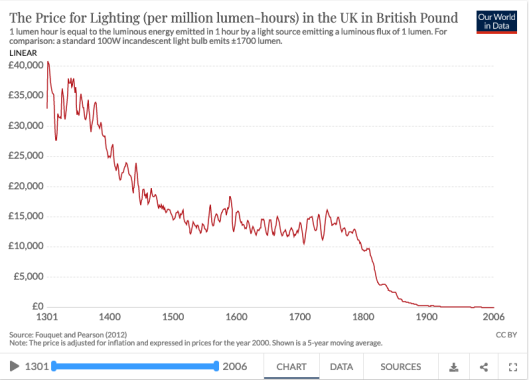No Sift next week. The next new articles will appear December 23.
The question presented by the set of facts enumerated in this report may be as simple as that posed by the President and his chief of staff’s brazenness: is the remedy of impeachment warranted for a president who would use the power of his office to coerce foreign interference in a U.S. election, or is that now a mere perk of the office that Americans must simply “get over”?
- Adam Schiff,
preface to The Trump-Ukraine Impeachment Inquiry Report
This week's featured posts are "Articles of Impeachment: Broad or Narrow?" and "The Illusions Underlying our Foreign Policy Discussions".
This week everybody was talking about articles of impeachment
The Schiff quote above is the key question in this impeachment, and I would follow it with two other questions:
- If soliciting or coercing foreign interference is just what presidents do now, how will we ever again have a fair election?
- If Trump's Ukraine extortion scheme was wrong but not impeachable, as some Republicans suggest, what is the proper response that will keep Trump (and future presidents) from continuing to commit such offenses?
Two major reports came out this week: The House Intelligence Committee summarized the findings of its hearings regarding Trump's Ukraine scheme, and the House Judiciary Committee reported on "Constitutional Grounds for Presidential Impeachment".
The Judiciary Committee heard from four legal scholars Wednesday, three called by the Democrats and one by the Republicans.
The Republican witness, Jonathan Turley (who you may have seen over the years on CNN), was also a witness during the Clinton impeachment hearings, where he said the exact opposite of what he's saying now. In 1998, he saw the danger of letting things go:
If you decide that certain acts do not rise to impeachable offenses, you will expand the space for executive conduct.
In 2014, when Obama was president, Turley listed five "myths" about impeachment, one of which was:
An impeachable offense must involve a violation of criminal law.
Now, though,
I'm concerned about lowering impeachment standard to fit a paucity of evidence and an abundance of anger.
and he argues that the evidence against Trump doesn't exactly fit the statutory elements for criminal bribery. (The other three witnesses said that it did.) So the need for a violation of criminal law isn't a myth when a Republican is president.
Further hearings are happening as I write this, and I'm not trying to keep up.
Digby sums up the current anti-impeachment argument:
So basically the GOP position is that you can't have an impeachment without examining all the relevant evidence and since Trump has denied all requests for that relevant evidence there can be no impeachment.
Fox News raises a point that I think they read entirely backwards.
While Democrats may use impeachment as an anti-Trump talking point on the campaign trail, candidates -- including Sens. Elizabeth Warren, D-Mass.; Bernie Sanders, I-Vt.; Amy Klobuchar, D-Minn.; Cory Booker, D-N.J., and Michael Bennet, D-Col. -- could end up spending valuable days of the primary season torn between their campaigns and a Senate trial should Trump actually be impeached.
An impeachment trial at that stage of the game would put the senators at a disadvantage, while candidates such as South Bend, Ind. Mayor Pete Buttigieg, former Vice President Joe Biden and former New York City Mayor Michael Bloomberg would be free to continue their efforts.
I think senators who are currently not polling in the top tier, like Booker or Klobuchar, could get far more traction out of a compelling pro-impeachment speech on the Senate floor than they could from a campaign event in Sioux City or Manchester. Conversely, who's going to pay attention to Buttigieg or Bloomberg when there's an impeachment trial on CNN?
BTW, I'm getting really tired of hearing pundits make the point that Democratic presidential candidates don't talk much about impeachment in their campaign speeches. Why would they? One way or the other, it should be all over before anyone votes in a primary. These candidates should be discussing their plans for 2021 and beyond, and leaving impeachment to Congress.
and the NATO summit
Trump came home early after a video of other NATO leaders laughing about him went viral. Biden capitalized with an ad about how the world is laughing at Trump, concluding with "We need a leader the world respects".
The incident and Trump's reaction gave me an idea that I hope catches on. Like a lot of people, I've been saying for a while that we need to be out on the streets holding pro-impeachment demonstrations. There should be a continuous impeachment vigil outside the White House.
But here's the idea: It shouldn't be an angry, chanting and sign-waving kind of demonstration. It should be comedy marathon. Every night, one or more of the country's top comedians should be standing on a soap box outside the White House telling Trump jokes. Any time Trump opens a window in the White House, he should be able to hear people laughing.
and Confederate symbols
Nikki Haley told interviewer Glenn Beck that the Confederate flag represented "service, sacrifice, and heritage" until the Charleston church shooter Dylan Roof hijacked it for white supremacy. Former RNC Chair Michael Steele recalled "The black people who were terrorized & lynched in its name" and concluded that "Roof didn’t hijack the meaning of that flag, he inherited it."
The Washington Post points out that
Confederate symbols have not always been a part of American or Southern life. Many of them disappeared after the Civil War. When they reappeared, it was not because of a newfound appreciation of Southern history. ... These symbols were not widely used after the Civil War but were reintroduced in the middle of the 20th century by white Southerners to fight against civil rights for African Americans.
Wake Forest and Garner, North Carolina have cancelled their annual Christmas parades, for fear that the participation of pro-Confederate groups would lead to protests and counter-protests. Of course, each side blames the other for ruining a popular children's event with politics. I sympathize with town officials, who were in a tough place legally: Banning particular points of view from a public parade is very tricky legally, as is banning protests of those views.
The University of North Carolina solved its "Silent Sam" problem, but not in a way that made anybody happy. Silent Sam is a statue of a Confederate soldier that stood at an entrance to the UNC campus for over a century until students tore it down last year.
The University settled a lawsuit filed by Sons of Confederate Veterans (who made a controversial claim to own the statue, based on the theory that removing the statue violated the conditions under which United Daughters of the Confederacy donated it to the University). The settlement agrees that SCV now owns Sam, and UNC is contributing $2.5 million to a fund to transport the statue and build it a new home.
The University's legal position was complicated by a 2015 North Carolina law that prohibits removal of historical monuments from public property. The law was passed after the Charleston Church massacre led to calls to remove Confederate monuments.
UNC's anti-racist groups are glad that Sam will not be coming back to intimidate black students as they enter campus, but are outraged that the University is contributing to a neo-Confederate group.
[Assistant professor William] Sturkey said he came to UNC in 2013 because he felt it was the best place in the country to study the history of the South. In recent years, he said, he has repeatedly asked the university to endow a professorship in the Department of History for a specialist in the history of slavery, in part to research the university’s own connections to slavery.
Each time, he said, he has been told UNC couldn’t afford to fund such an endowment, which Sturkey said would cost about half the amount that has been pledged to the Sons of Confederate Veterans through the Silent Sam settlement.
and you also might be interested in ...
If you're worried that the House can't legislate because it's so obsessed with impeachment, consider this: Friday it passed a law to restore the parts of the Voting Rights Act that the Supreme Court voided in 2013.
In the Shelby case, Chief Justice John G. Roberts Jr. wrote that Congress remained free to try to impose federal oversight on states where voting rights were at risk, but must do so based on contemporary data. The measure passed on Friday was an attempt to do just that.
Specifically, it would update the parameters used to determine which states and territories need to seek approval for electoral procedures, requiring public notice for voting changes and expanding access for Native American and Alaska Native voters.
Two points are worth noting:
- Protecting voting rights used to be a bipartisan issue, but no longer is. The previous extension of the Act, in 2006, passed the House 390-33 and the Senate 98-0. This time the VRA passed the House 228-187, with only one Republican voting for it.
- Like hundreds of other bills passed by what Trump calls "the do-nothing Democrats", the VRA is expected to die in the Senate without being brought to a vote. So the point isn't that Republicans have a different vision of how to protect voting rights, which McConnell & Company could write into a Senate version of the bill and send back to the House. Instead, Republicans in Congress are happy with the efforts of many red states to make it as hard as possible to vote, and want the federal government to leave them alone.
Waitman Wade Beorn explains why avoiding war crimes is a good idea. (Hard to believe that point needs defending, but under the current administration it does.) Using both his own combat experiences and examples from his training, he argues that "Abiding by the law of war has both ethical and pragmatic value." He quotes his first squadron commander: "the laws of warfare are designed not only to protect civilians, but also to minimize the risk of moral injury to troops."
"Moral injury" is an abstract way of saying that you don't have to wake up at night seeing the faces of the family you massacred because you shot first and thought later.
Katie Hill, the California congresswoman who was pushed out of public life by a revenge-porn scandal, wrote a very moving account of how close she came to suicide, and why she didn't do it.
This makes me wonder: Men who go through scandals seem to benefit from an unofficial statute of limitations. (Louis CK is on his comeback tour. Woody Allen is still making movies. Eliot Spitzer had a post-scandal media career and even ran for office again.) Could the same thing possibly work for victims of sex scandals?
I mean, after some interval, could Ms. Hill run for office again? Would the media respond to her revenge-porn pictures as old news? I hesitate to urge someone to display more courage than I would probably have, but someone someday should try this, just to raise the issue.
An important article in YES! magazine about a former white supremacist who works to help others deradicalize. She focuses not on the philosophical points of ideology, but on the emotional needs that white supremacy satisfies.
In every case she’s ever encountered, Martinez said, she’s been able to identify some type of unhealed trauma. Sometimes it’s extreme, as in the case of a young woman interviewed for this story who was repeatedly raped as a child by her grandfather—and then, once in the movement, raped again by a White nationalist boyfriend ... Sometimes the trauma is less extreme, but there are always fundamental and unmet needs, Martinez says: the need to love and be loved, to speak and be heard, and to be a part of something greater than yourself. Deradicalization involves identifying the trauma, and finding new resources, behaviors and networks outside extremist groups to meet those needs.
Too often, we think of people doing things because they believe things. Often it's the reverse: They believe things that justify doing the things they feel compelled to do. If you are filled with fear, you find a paranoid worldview that justifies that fear. If you're filled with anger, you adopt a worldview that justifies that anger. Such people don't need to hear facts that debunk their beliefs; they need to learn healthier ways to deal with fear and anger.
The NYT reports that hundreds of Hong Kong protesters have fled to Taiwan, where their visas are renewable month-to-month. Meanwhile, the demonstrations continue: Hundreds of thousands of protesters were on the streets yesterday.
North Korea is back to testing rockets, in preparation for a "Christmas gift" for the US, which analysts suspect could be a satellite launch. Trump tweeted this response:
Kim Jong Un is too smart and has far too much to lose, everything actually, if he acts in a hostile way. He signed a strong Denuclearization Agreement with me in Singapore. He does not want to void his special relationship with the President of the United States
(Oval Office soundtrack: "Don't Give Up on Us, Baby".) I've been a skeptic about the Trump/Kim relationship from the beginning. It has always seemed like one of those movie-star romances that the PR departments liked to dream up back in Hollywood's big-studio era.
The United Kingdom has an election Thursday. Boris Johnson hopes to get a majority behind his Brexit plan. Ben Judah writes in the Washington Post: "Russia has already won Britain's election".
There are (at least) two distinct kinds of bigotry. The most egregious is outright hate: Kill them all, send them back where they came from, and so on. Trump is insulated against being accused of this kind of anti-Semitism by his some-of-my-best-sons-in-law-are-Jewish defense.
The second kind of bigotry may not be overtly hostile, but it pushes the stereotypes that dehumanize the victimized group. That's what Trump was doing when he spoke to the Israeli American Council Saturday.
A lot of you are in the real estate business, because I know you very well. You’re brutal killers, not nice people at all. But you have to vote for me — you have no choice. You’re not gonna vote for Pocahontas, I can tell you that. You’re not gonna vote for the wealth tax.
In other words, Jews are rich, ruthless businessmen who only care about money. Goebbels couldn't have said it better.
The Bloomberg campaign will be a test of what money can do in presidential politics. A typical candidate raises enough money to compete in the early small states -- Iowa, New Hampshire, South Carolina, and Nevada -- hoping that strong showings there will bring in more contributions that allow the campaign to continue nationwide.
Bloomberg is spending near-limitless amounts of his own money, so the early-state strategy doesn't apply.
Jim Brown makes a strong case for raising pensions for NFL players who played before the million-dollar-contract era. It would cost a very tiny percentage of the revenue the league generates today.
The minister of a Methodist church in California posts a lengthy annotation of the church's nativity scene, which shows the Holy Family separated in cages, as they might well have been if New Testament Egypt had been like America today.
In the Claremont United Methodist Church nativity scene this Christmas, the Holy Family takes the place of the thousands of nameless families separated at our borders. Inside the church, you will see this same family reunited, the Holy Family together, in a nativity that joins the angels in singing “Glory to God in the highest and on earth peace and good will to all.”
I'm reminded of a stage production of The Odyssey I saw a few years ago: When Odysseus washes up on the island of the Phaeacians, he gets gets detained with all the illegal immigrants who have been streaming in since the fall of Troy.
and let's close with a job well done
At Boise State, home of the famous blue football field, they've trained a dog to retrieve the tee after kickoffs.


















